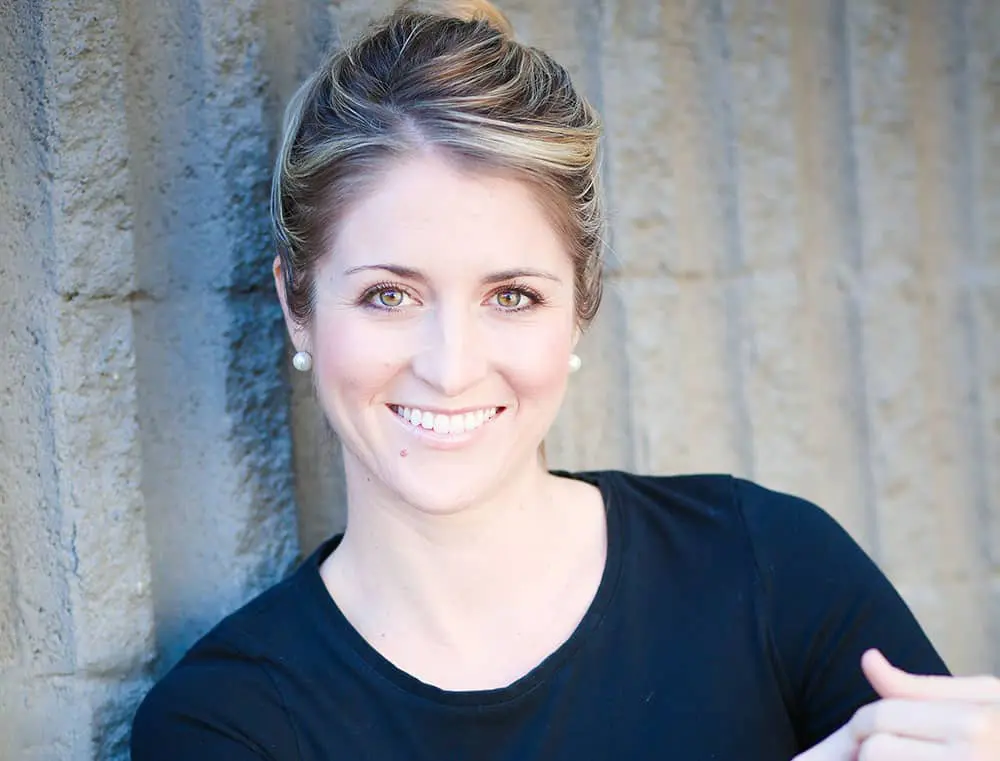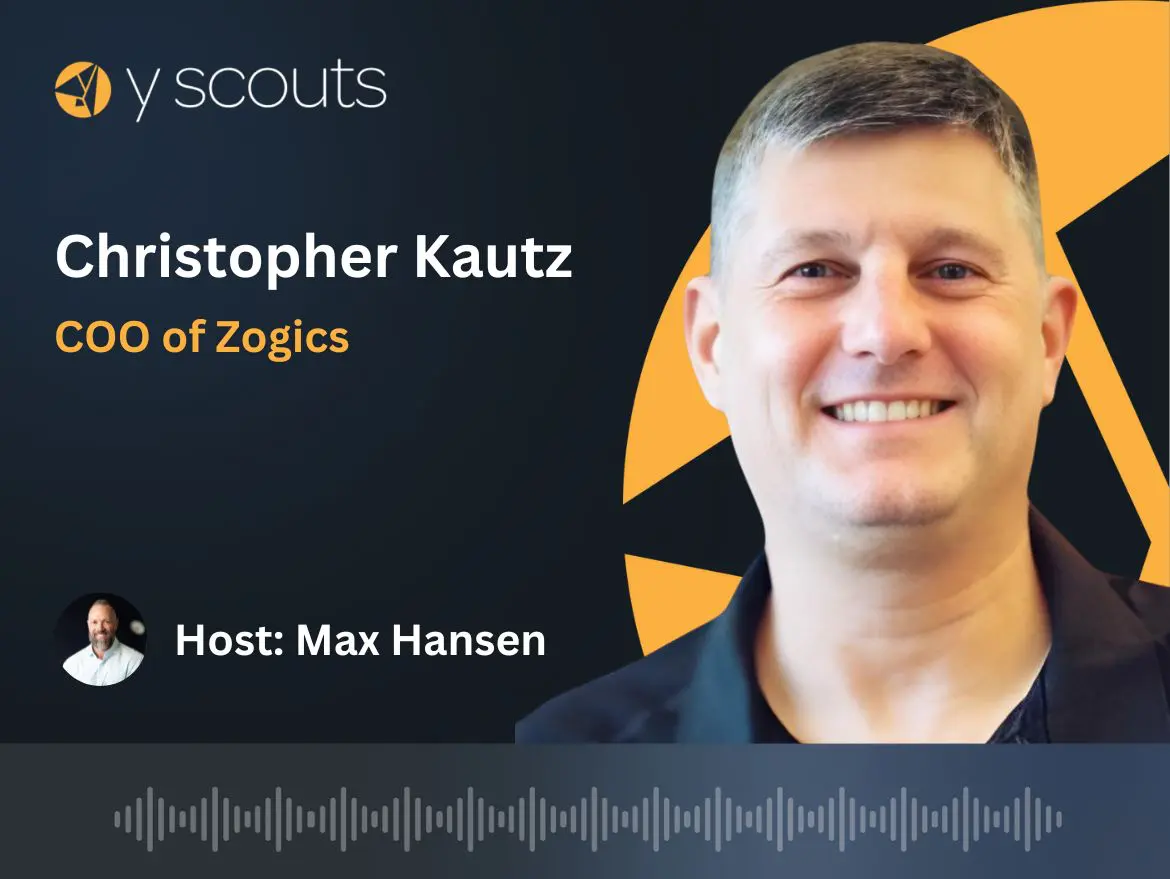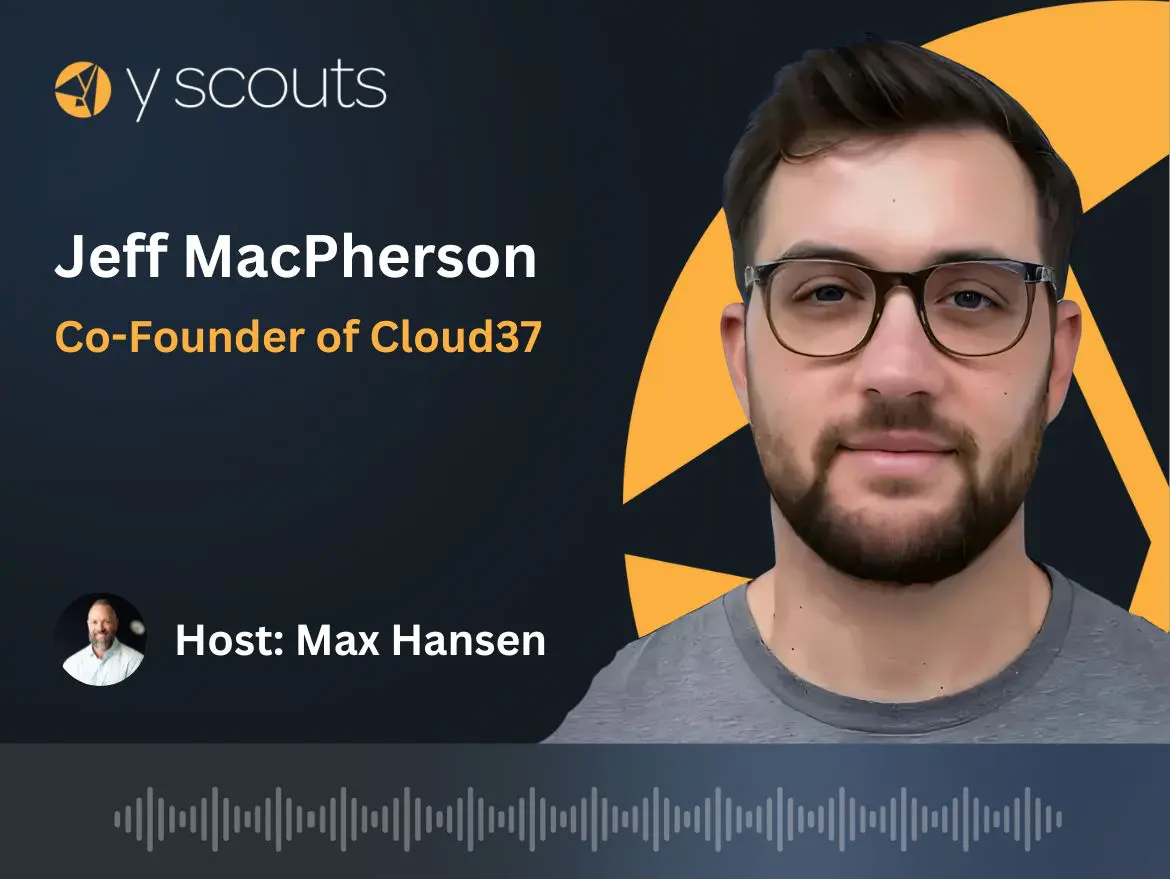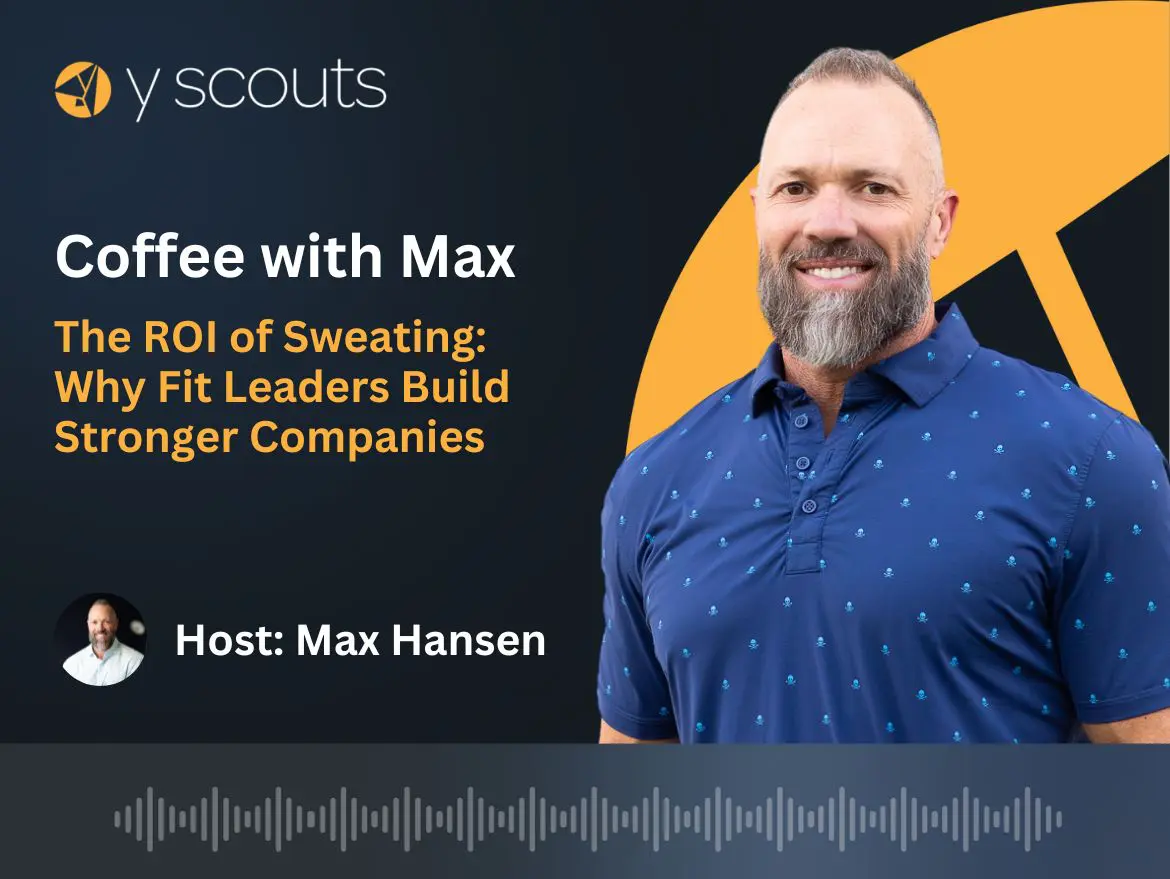
If we had to sum up Courtney Klein in a word, it would be “dreamer.” From her early childhood dream of wanting to be Katie Couric, through the twists and turns of life, Courtney is on a mission to leave this world a little better than how she found it.
Courtney is the co-founder and CEO of SEED SPOT. It’s a social impact incubator responsible for helping ignite the dreams of entrepreneurs who want to use business as a force for good. In this episode, Courtney shares many valuable lessons learned. Lessons like it’s better to take the business card, not the credit card, and how you should never doubt yourself because there are plenty of people who will do that for you.
In this Courtney Klein interview, we dive deep into the current state of our country’s educational system with a specific emphasis on how SEED SPOT is addressing the solution to give our high school graduates the real life skills and knowledge necessary to make meaningful contributions to the world. We also explore why SEED SPOT chose to not take equity in the ventures they are supporting. We also discuss how this controversial decision has served as a beacon for the organization. It’s something that has landed SEED SPOT as one of the top 3 incubators on the planet. In addition to being the co-founder and CEO of SEED SPOT, Courtney is a new mom and an Ironman finisher. We’ll explore the impact both of these have had on her life. If Courtney represents the future of leadership, we’ll be pretty satisfied with where the world is headed.
Listen to this podcast interview and more episodes from the Built On Purpose Podcast at https://yscouts.com/podcast/.
Table of Contents
ToggleSHOW HIGHLIGHTS:
- 4:19 – Courtney Klein’s decision to take a life-changing trip
- 5:34 – Overruling fear of judgment with self-autonomy
- 9:13 – Preparing kids for the future
- 12:49 – The birth of SEED SPOT
- 14:52 – Support of the community
- 17:17 – Phoenix, a great spot for entrepreneurship
- 18:50 – Reading for authenticity
- 21:46 – Courtney Klein’s mentorship under Dr. Lattie Coor
- 24:35 – Handing over your business card vs. your credit card
- 27:40 – SEED SPOT sustainable as a no-equity organization
- 31:38 – The struggle between a nonprofit or a for-profit
- 35:09 – Planting the seed for the next generation
- 39:59 – School as a place for empowerment
- 41:14 – Why Courtney does what she does
- 43:20 – Completing an IronMan and the hunger for more
- 47:22 – What is next for SEED SPOT
SHOW LINKS:
- Seed Spot: https://www.seedspot.org/
- “ASU honors Jerry Bisgrove for unwavering commitment to Arizona:” https://www.asu.edu/
news/stories/200605/20060509_ bisgrove.htm - Kauffman Foundation: https://www.
kauffman.org/ - SEED SPOT listed on the Kauffman Foundation’s list of nonprofit grantees: https://www.kauffman.org/what-we-do/programs/entrepreneurship/expanding-quality-support-for-entrepreneurs
COURTNEY KLEIN PODCAST HIGHLIGHTS
Q: Let’s start with: who is Courtney Klein?
A: Who is Courtney Klein? I’m a dreamer, I’m a doer, I’m an entrepreneur, I’m a mother, a sister, an Ironman finisher. I think more than anything, though, I’m a person in the world who believes in the power of a dream. And the power of individual being bold enough and brave enough to share that dream with the world, and get the support they need to make it come to life. That’s kind of what my whole career and life work has really focused on thus far.
Q: Well then let’s go with this dream theme, if you will. So when you were growing up as a kid, what was your dream?
A: My dream actually was to become Katie Couric, live in New York and work on national television. But that dream shifted, even though I started in college as a broadcast journalism major. I took a trip after my freshman year in college into a super rural village in Mexico. There, I saw firsthand how the rest of the world actually lived. I was in a rural village about two and a half hours in from Cancun, and witnessed for the first time at 19 how most of the world actually lived. We burned our toilet paper and showered in the rain, slept in huts, and it was the richest experience I had ever had. Because the community itself believed in community and believed in change and believed in education. They really had hope and optimism for what the future could look like.
So on that premise, I came back and the dream shifted a little bit into wanting to build an organization that would educate other young people. So they could know what the rest of the world actually looked like and empowered them to make change.

Q: So here you were in your childhood, your middle school, your high school years, you’re getting geared up for whatever preparatory courses you’re taking for broadcast journalism. You go through what sounds like a semester or two with that being the focus, you take this trip and all of a sudden, boom. Your entire life changes and you’re going to focus on something totally different than broadcast journalism. To me, it begs the question: is what’s being taught in our more formative years actually prepping kids to go into whether it be college or just right into the workforce? With the right skills in order for them to choose properly? I’m assuming you think about that often.
A: I do think about it often. While I’m a decade-plus out of K-12 education, I remember feeling it then and observing high school and junior high and elementary students now. And the stress of homework and test taking and results and metrics, and now that I’m on the other side of it, it has no real world application. Yet the institution of education, for the most part, continues to teach to that.
So something I question, and something I wish I would’ve been asked a younger age is, what problems in the world do you see? What problems in the world do you want to become more aware of? What are you observing? What’s frustrating you? What’s upsetting your peers? What are you reading in the newspaper headlines? How can we equip this next generation to actually change it? To develop the tactical skills, soft skills, communication, relationship building, everything that takes to create change and live a fulfilling life? To me, that’s the question for this next decade or two of education. How do we shift to be student-centric and problem-centric? And to really amply prepare students to solve problems in the world?
Q: We obviously fast-forwarded very quickly from Courtney Klein’s childhood dream of wanting to be in broadcast journalism and hold someone like Katie Couric as such an idol and role model. And then through childhood, through college, you take this unbelievable, profound trip early in your freshman year. During your sophomore, junior, senior year, were you second-guessing yourself along the way about the change?
A: You know, I think that’s a good question. I don’t think I ever looked back to be honest. I plowed right through, and once I was set on the new dream, until there was reason to really think otherwise, I went full-force. And I knew it was going to take time in college to build the relationships and get an organization structured and secure funding, so I took my time in those three years of college to really learn everything I could.
I shadowed executives, I interned at places, I volunteered. Also, I worked at different non-profits just to get a lay of the land for what I was really stepping into. I do think that gave me some confidence along with my education to know exactly what I was getting myself into, and yet there were still many unknown things once you actually dive in. Yeah, I didn’t look back.
Q: Let’s talk about SEED SPOT, the organization you co-founded some four and a half, going on five years ago. Share with us a little bit about how the idea of SEED SPOT came to be.
A: Coming out of college, I started a nonprofit. I worked with young people, empowered them to create change, and led that organization successfully for seven years. I had great mentors, great leaders, great champions that rallied around this 21-year old kid about to graduate that had a dream. And because of that journey, and the first seven years of my career so surrounded by mentors and champions and people that believed in a dream, when I exited that organization, I really started to question, where do you go? If you don’t have a university or if you don’t have a peer network, where do you go if you have a seed of an idea and want to create change in the world? And now there’s incubators and accelerators all over the country, but most of them focused on high-tech, high growth companies.
So SEED SPOT really set out on a mission to serve entrepreneurs that otherwise wouldn’t have access to mentorship, education, training, capital office space, and demo-day presentations. And so four and a half years ago,there was this vision to build SEED SPOT as an epicenter in Phoenix, of all places, exclusively supporting social entrepreneurs. So product, service, or technology, anyone that wanted to make the world a better place. Statistically, 49% of the entrepreneurs we worked with are female-founded, 40% are minorities. We’re starting to buck the trend of what traditional Silicon Valley might look like in terms of tech startups or high-growth firms. And so SEED SPOT has really been on this journey to level the playing field for social entrepreneurs of all backgrounds and all disciplines to have equal access. To help accelerate their dreams to help make the world a better place.
Q: This is coming from a father of two young girls who are going to be in high school before I know it. If they came home from freshman or sophomore class, talking to my wife and me about a particular class and a problem or a business idea they’ll want to bring to life—what a rewarding thing for the parents as well. Or the family unit, to rally around what it is the child is learning. And very different from—not necessarily more or less important than—algebra homework or history homework. I’m not saying that those things don’t matter, but what a different dinnertime conversation and a way to really engage the family unit in the child’s education.
A: And I would argue to that, algebra and math and homework, it matters only so much as it’s empowering students to be agents of change in their future, right? And anything taught in a silo or a bubble that doesn’t have real-world application isn’t relevant anymore. I think that’s the shift we’re seeing in education and in this notion of relevancy in K-12. Whether you want to call it 21st century skills, students need preparation to enter the real world.
And that looks like a very different education than even the one I had, let alone the one my parents had. Yet administrators and schools are desperately, and I have to credit them for being the champions, trying to push to say that there is a different way. I think that we’re just happy to be a part of that solution in solving the problem amongst many others that are trying to solve this very problem.
Listen to this Courtney Klein podcast and more at https://yscouts.com/podcast/.






